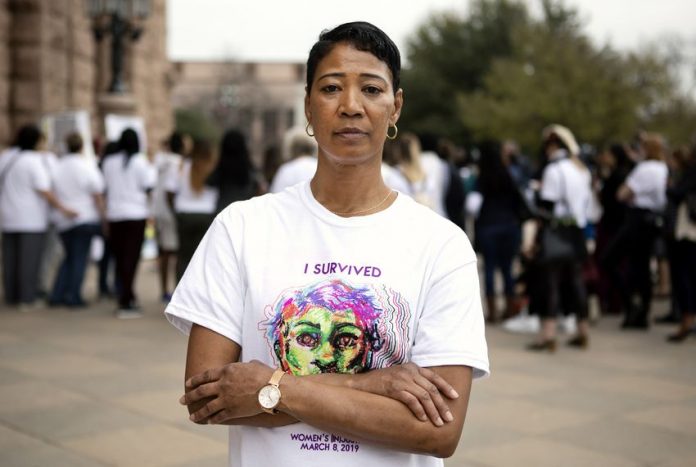 |
|
Motivational
Quote |
 |
|
|
|
|
|
Live from the Studio.. The
Studio has gone Live.. Every Second Friday
join us for a night of talent and dancing.
If you got talent of any kind you must enter
this contest......Click on picture below to
see video
|
 |
 |
|
|
|
|
|
-
Date/time: April 30th, 7:00pm to
11:00pm
-
Venue:
Smart Financial Centre
-
Address:
1811 Lexington Blvd, Sugar Land, 77002
|
|
Democratic presidential candidate Beto
O’Rourke raised more than $6 million online
during the first 24 hours after he announced
his White House bid, the highest first-day
number reported by any candidate, his
campaign said Monday.
The “record-breaking” $6.1 million came
“without a dime” from political action
committees, corporations or special
interests, O’Rourke spokesman Chris Evans
tweeted.
The $6.1 million is just above what
Vermont Sen. Bernie Sanders reported for his
first day as a candidate.
O’Rourke, a former Texas congressman,
jumped into the 2020 presidential race on
Thursday after months of speculation,
shaking up the already packed Democratic
field and pledging to win over voters from
across the political spectrum.
O’Rourke raised an eye-popping $80
million in grassroots donations last year in
his failed U.S. Senate race in Texas against
incumbent Republican Ted Cruz, all while
largely avoiding money from PACs. His early
fundraising numbers in the presidential
contest will be seen as an initial signal of
whether his popularity during the Senate
campaign will carry over to his White House
bid.
The new figures set O’Rourke and Sanders
apart from the rest of the Democratic field
in launch-day fundraising. California Sen.
Kamala Harris reported raising $1.5 million
in the 24 hours after she launched her
campaign in January. Minnesota Sen. Amy
Klobuchar reported raising $1 million in the
48 hours after launching her campaign in
February.
Washington Gov. Jay Inslee said three
days after starting his presidential
campaign this month that he had raised more
than $1 million, a notable haul for a
governor less widely known than many of his
competitors in a field dominated by
senators.
Sanders has set the pace for 2020
grassroots donations. Aided by the $6
million he pulled in on his first day as a
candidate, he took in more than $10 million
in the first week, overwhelmingly from small
donors.
O’Rourke, asked last week if he thought
he would top Sanders, said only, “We’ll
see.”
|
|
|
Potatoes, Eggs, and
Coffee Beans

Once upon a time a daughter complained to her father
that her life was miserable and that she didn’t know how
she was going to make it. She was tired of fighting and
struggling all the time. It seemed just as one problem
was solved, another one soon followed.
Her father, a chef, took her to the kitchen. He
filled three pots with water and placed each on a high
fire. Once the three pots began to boil, he placed
potatoes in one pot, eggs in the second pot, and ground
coffee beans in the third pot.
He then let them sit and boil, without saying a word
to his daughter. The daughter, moaned and impatiently
waited, wondering what he was doing.
After twenty minutes he turned off the burners. He
took the potatoes out of the pot and placed them in a
bowl. He pulled the
boiled
eggs out and placed them in a bowl.
He then ladled the coffee out and placed it in a
cup. Turning to her he asked. “Daughter, what do you
see?”
“Potatoes, eggs, and coffee,” she hastily replied.
“Look closer,” he said, “and touch the potatoes.”
She did and noted that they were soft. He then asked her
to take an egg and break it. After pulling off the
shell, she observed the hard-boiled egg. Finally, he
asked her to sip the coffee. Its rich aroma brought a
smile to her face.
“Father, what does this mean?” she asked.
He then explained that the potatoes, the eggs and
coffee beans had each faced the same adversity– the
boiling water.
However, each one reacted differently.
The potato went in strong, hard, and unrelenting,
but in boiling water, it became soft and weak.
The egg was fragile, with the thin outer shell
protecting its liquid interior until it was put in the
boiling water. Then the inside of the egg became hard.
However, the ground coffee beans were unique. After
they were exposed to the boiling water, they changed the
water and created something new.
“Which are you,” he asked his daughter. “When
adversity knocks on your door, how do you respond? Are
you a potato, an egg, or a coffee bean? “
Moral:In life, things happen around us, things
happen to us, but the only thing that truly matters is
what happens within us.
Which one are you?
|
The smaller the Club the Bigger the
Party!
|
|
Come out relax and enjoy the
sounds of DJ Chatterbox. Click
on picture below to see who's up
in the club.
|
|
|
|
|
|
|
|
|
|
|
The
PINNACLE Center is free* for use to Fort Bend and City
of Houston residents that are ages 50 and above. |

|
The PINNACLE Center
includes:
-
Wi-Fi Internet Café
-
Fitness Center
-
Outdoor Walking Trail
-
Fitness Classes
– Self Defense, Weight Training, Zumba,
Flexibility, Aerobics, and Chair Fitness
-
Ping Pong
-
Dance Classes
– Line Dancing, Two Stepping and Swing Out
-
Veterans Assistance &
Social Service Assistance
-
Financial Planning
-
Knowledge is POWER DAY
-
Computer Classes
-
Table Games -
Bingo, Dominos and various Card Games
-
Marketplace Monday
-
Vendors welcome on the 1st Monday of each
month
|
|
|
|
|
|
|














